#Yalta Conference
Explore tagged Tumblr posts
Text

"I hope that you will pardon me for this unusual posture of sitting down...but I know that you will realize that it makes it a lot easier for me not to have to carry about ten pounds of steel around on the bottom of my legs."
- Franklin Roosevelt, Address to Congress on the Yalta Conference, March 1, 1945
After the Yalta Conference, FDR made a grueling 7,000-mile journey home by plane and ship. While at sea, his long-time aide and friend, Edwin "Pa" Watson, died of a stroke. Watson's death cast a pall over the returning presidential party.
By the time he returned to Washington, the President was exhausted. But he was determined to report quickly to the nation about the conference. On March 1, he addressed a joint session of Congress at the Capitol. His audience was struck by FDR's gaunt appearance. Even more striking was that he delivered the speech while seated. FDR confronted the issue directly in the first line of his address, publicly acknowledging his disability for the first and only time in his presidential career.
395 notes
·
View notes
Text

(Photoshop?)
#The War Room#pizza#giant pizza#yalta#yalta conference#pepperoni#pizza party#pizza pie#pizza pizza#pizza hut#gorbachev#pineapple on pizza#pizza king#delivery#doctor strangelove#photoshop
11 notes
·
View notes
Text
“I will have no suggestion that the British Empire is to be put in the dock,” said Prime Minister Churchill at the 1945 Yalta Conference, “and examined by everybody to see whether it is up to their standard.” During the drafting of the UN Charter later that year, Britain succeeded in limiting discussion of decolonization to a vague requirement that rulers be mindful of “the interests of the inhabitants” of their colonies and plan for “self-government or independence” at some undefined future point. Caught between principle and power, Washington softened its anti-colonial position to accommodate the British and French, but took a hard line against the Dutch.
Alfred W. McCoy, To Govern the Globe: World Orders and Catastrophic Change
13 notes
·
View notes
Text

Eighty years ago today, the fate of postwar Europe was carved out. And everything was fine for everyone involved.
3 notes
·
View notes
Text

Roosevelt looks so miserable in this photo
#history memes#history#ussr#british empire#britian#USA#america#soviet union#wwii history#world war 2#yalta conference#joseph stalin#winston churchill#franklin d. roosevelt#1940s photography#1940s#yalta
17 notes
·
View notes
Text
Combined Might of Stalin, Roosevelt And Churchill Saved The World. Can We Repeat The Recipe?
How Three Men In Yalta Decided The Fate of The Planet – And Why It Still Matters
— April 04, 2025 | Russia Today | Roman Shumov

The Yalta (Crimea) Conference of Allied Leaders (February 4-11, 1945). © Sputnik/RIA Novosti © Russia Today (RT)
Discussions about building a new global order have become increasingly frequent and urgent. Many argue that the international system established after World War II can no longer effectively prevent the tragedies and conflicts we witness today. But how exactly was this fragile system created in the first place?
Much like today, Europe became a brutal battleground in the mid-20th century. At that crucial turning point, Moscow and the Western powers were forced into negotiations, despite mutual distrust and seemingly insurmountable differences. They had little choice but to come together, stop the bloodshed, and create a new framework for global security. These uneasy compromises and agreements fundamentally shaped today’s world.
Unlikely Allies
Before WWII, the idea of an alliance between the Western powers and the Soviet Union seemed unimaginable. Western leaders dismissed Soviet attempts to contain Adolf Hitler’s aggressive ambitions, viewing the USSR as neither strong nor trustworthy enough to be a partner. Miscalculations and mutual suspicion drove both the West and the Soviets to separately strike deals with Hitler – first the Western powers in 1938, then the Soviet Union in 1939. These ill-fated decisions allowed Nazi Germany to destroy Czechoslovakia and conquer Europe step by step.
Everything changed in June 1941 when Nazi Germany invaded the Soviet Union, forcing Moscow into an alliance with Britain. Few believed the Soviet Union could withstand Germany’s powerful military, which had quickly defeated Western armies. Yet, Soviet forces fiercely resisted. By December, the Soviets launched a counteroffensive near Moscow, halting the German advance. Days later, Japan attacked Pearl Harbor, drawing the United States fully into the war. The Anti-Hitler Coalition was now complete, united by the common goal of defeating Nazi Germany.
Despite military cooperation, deep tensions remained among the Allies, especially over territorial ambitions. Between 1939 and 1940, the USSR reclaimed territories formerly belonging to the Russian Empire – regions in eastern Poland, parts of Finland, Bessarabia (today’s Moldova), and the Baltic republics of Estonia, Latvia, and Lithuania. Although Poland and other affected nations protested, wartime priorities overshadowed these concerns. Moreover, the Allies were willing to sacrifice national sovereignty in strategically important regions – such as Iran, jointly occupied by Britain and the USSR – to ensure vital supply routes.

Strategic Disputes and Shifts
Stalin repeatedly demanded that the Allies open a second front in Europe to relieve pressure on Soviet forces, which were sustaining tremendous losses. Frustrated by Allied focus on North Africa and Italy rather than a direct assault against Germany, Stalin nonetheless accepted substantial military aid via Lend-Lease and benefited indirectly from relentless Allied bombing of German industry.
In 1942, Allied leaders debated whether to prioritize defeating Germany in Europe or Japan in the Pacific. Winston Churchill insisted that crushing Germany would inevitably lead to Japan’s defeat. Despite America’s primary focus on the Pacific, strategic logic eventually favored Europe.
Yet the Allied path into Europe proved difficult. The British favored a strategy of encircling Germany – first via North Africa and Italy – before invading France from the north. The disastrous Dieppe raid underscored the challenge of invading France directly. Consequently, operations began in North Africa in 1942 and Italy in 1943, irritating Stalin, who criticized these campaigns as secondary. While Allied bombing weakened Germany’s war industry, Stalin continued pressing for immediate help on the Eastern Front.
In 1943, decisive Allied victories at Stalingrad and in North Africa turned the tide. Leaders now demanded Germany’s unconditional surrender, hardening German resistance but solidifying Allied resolve. Victories continued as the Soviets advanced decisively through Ukraine and Poland, while Western forces moved slowly through Italy.
In November 1943, Roosevelt, Churchill, and Stalin met in Tehran. The conference proved crucially productive: leaders finalized plans for the Normandy invasion to open a western front, secured Soviet commitment to join the war against Japan after Germany’s defeat, and debated Germany’s future. Churchill and Roosevelt proposed dividing Germany into several states, but Stalin insisted it remain unified.
Significant progress was also made regarding Poland. Stalin gained acceptance for the Soviet annexation of eastern Polish territories, compensating Poland with land in eastern Germany and parts of East Prussia. Most importantly, Tehran set the stage for establishing the United Nations as a mechanism to prevent future global conflicts.

Turkish President Recep Tayyip Erdoğan, US President Donald Trump and Russian President Vladimir Putin Chat on the Second Day of the G20 Summit at Intex Osaka Exhibition Center in Osaka, Japan on June 29, 2019. © Turkish Presidency/Handout/Anadolu Agency/Getty Images
Yalta and The New World Order
In February 1945, world leaders convened at the Yalta Conference in Crimea to determine the shape of the post-war world. Although Nazi Germany was still resisting fiercely, it was evident their defeat was inevitable, prompting discussions about the future global order.
The Yalta summit represented the high point of an unlikely and uneasy alliance between vastly different countries, yet its outcome provided the foundation for decades of relative stability.
Hosted at Livadia Palace, a former summer residence of the Russian emperors on the Crimean peninsula, the meeting brought together Franklin Roosevelt, Winston Churchill, and Joseph Stalin. Each leader had distinct objectives: Roosevelt aimed to secure America’s dominant position in the post-war world; Churchill sought to preserve Britain’s empire; and Stalin wanted to guarantee Soviet security and advance the interests of international socialism. Despite these stark differences, they sought common ground.
A key issue was the fate of the Far East. Stalin agreed to join the war against Japan once Germany was defeated but laid down firm conditions, demanding territory from Japan and recognition of Soviet interests in China. Though each leader conducted behind-the-scenes negotiations without informing the others, agreements regarding Asia were ultimately reached. In Europe, they decided Germany would be divided into occupation zones administered by the USSR and the Allies – the latter further split into American, British, and later French sectors.
The Allies planned Germany’s total demilitarization, denazification, and reparations payments, including forced labor. Poland fell within the Soviet sphere of influence; despite strong protests by Poland’s exiled government, the USSR gained territories in eastern Poland, compensating the Poles with German lands to the west, including parts of East Prussia, Pomerania, and Silesia. Although Stalin considered a coalition Polish government including diverse political factions, he already had a clear plan for Soviet control there. In contrast, Western and Southern Europe remained firmly in the Allied sphere.
The future structure of the United Nations was also extensively discussed at Yalta. Debates were intense and focused on maximizing each country’s influence. Stalin initially proposed separate UN representation for every Soviet republic, while Roosevelt envisioned a Security Council without veto powers. Ultimately, they agreed upon establishing the UN and a Security Council with veto power for major states, dedicated to preserving global peace and stability.
While Yalta did not achieve perfect justice, it set the stage for a world divided into spheres of influence – causing forced migrations, suffering, and political repression. Just as the Soviet Union brutally crushed Polish resistance, Britain harshly suppressed communist movements in Greece. Border changes forced millions from their homes: Germans were expelled from areas they had inhabited for centuries, Poles were displaced from Ukraine, and Ukrainians from Poland.
Nevertheless, at that moment in history, no better alternatives seemed viable. The Yalta agreements demonstrated that negotiation was possible, outlining a global structure that lasted nearly half a century. Today, the UN still functions, and its creation at Yalta reminds us that, despite deep differences, compromise and cooperation remain possible paths forward.
— By Roman Shumov, A Russian Historian Focused on Conflicts and International Politics
#Feature#Russia 🇷🇺 Today#Roman Shumov#Yalta Conference#Joseph Vissarionovich Stalin#Franklin Delano Roosevelt#Sir Winston Leonard Spencer Churchill
1 note
·
View note
Text
Let’s Talk Trump, Putin, and the Wild New World Order
Imagine we’re grabbing coffee, and you lean in, curious but a little lost, asking, “What’s going on with Trump and Putin lately? I keep hearing stuff, but it’s all a blur.” I’d grin, take a sip, and say, “Buckle up, because the world’s shifting under our feet—and it’s not subtle.” We’re diving into a chat about shifting global dynamics, where the old rules-based international relations are…
#American influence#Central Asia#Europe hard power#great powers#military capabilities#nato#politics#powerful leaders#Putin strategic gains#rules-based international relations#russia#Russian sphere of influence#shifting global dynamics#ukraine#unified front#war#Yalta Conference
0 notes
Text
TODAY IN HISTORY: February 4
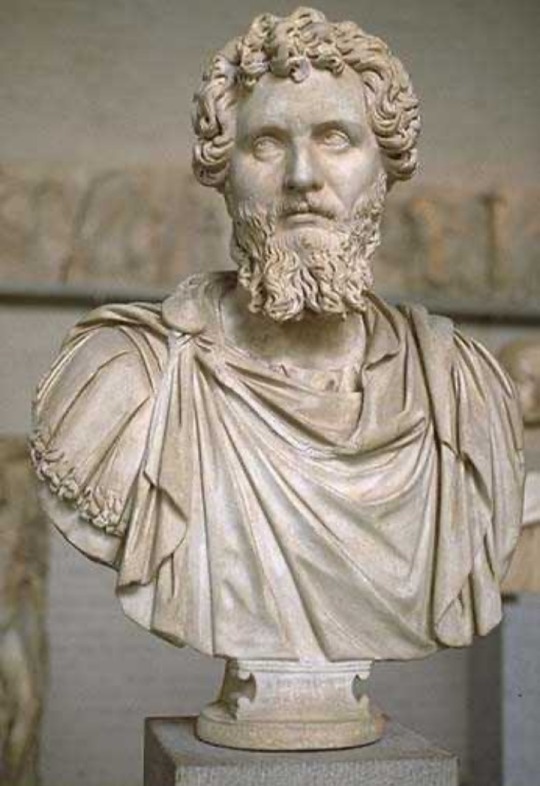
4 February 211 AD
"Be harmonious, enrich the soldiers, scorn all others."
These were the words of Roman Emperor Septimius Severus to his sons before he died on this date in 211 AD.
The advice is consistent with how he carried himself during his nearly 20 year reign as Emperor.
Severus died from an illness in Eboracum (York, England) while on a campaign to conquer Caledonia (Scotland).
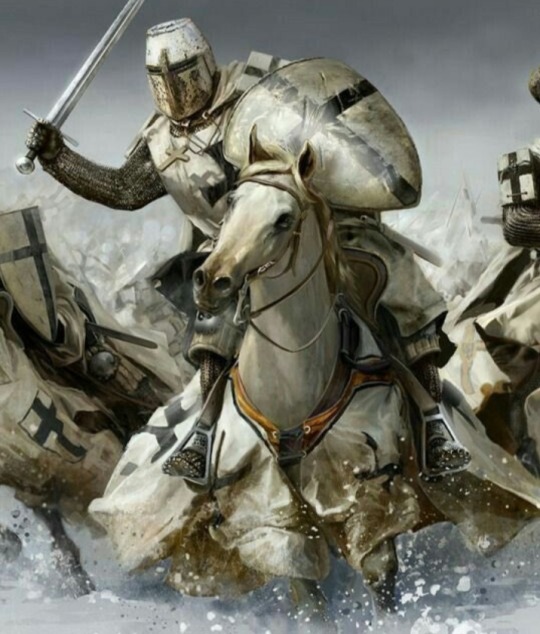
4 February 1454
The Prussian Confederation challenged the Teutonic Knights by sending a formal act of disobedience, rebelling against their rule and starting the Thirteen Years' War.
This rebellion was fueled by dissatisfaction with the Knights' governance in Prussia and the desire for freedom.
The confederation needed allies, so they aligned with Polish King Casimir IV Jagiellonto to help fight against the Knights.
The battles were mainly waged across Prussia and ended with the Second Peace of Thorn in 1466.
This agreement split Prussia, granting Poland control of the western part (Royal Prussia) and leaving the eastern section (Ducal Prussia) under the Teutonic Order.
The loss of land and power was a huge hit to the Teutonic Order.
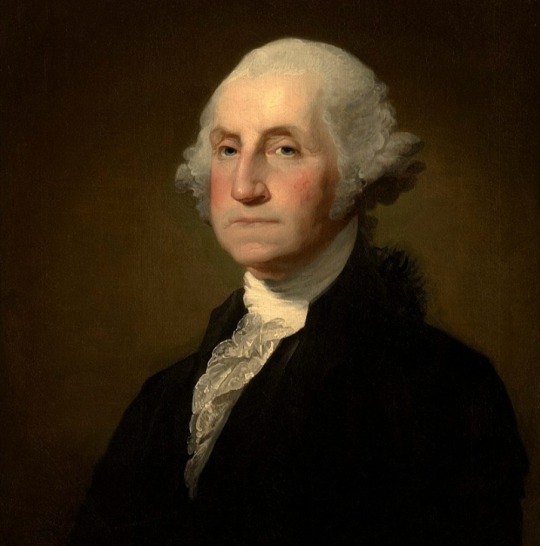
4 February 1789
George Washington was unanimously elected as the first President of the United States by the Electoral College, receiving all 69 electoral votes.
He is the only president in history to be unanimously chosen.
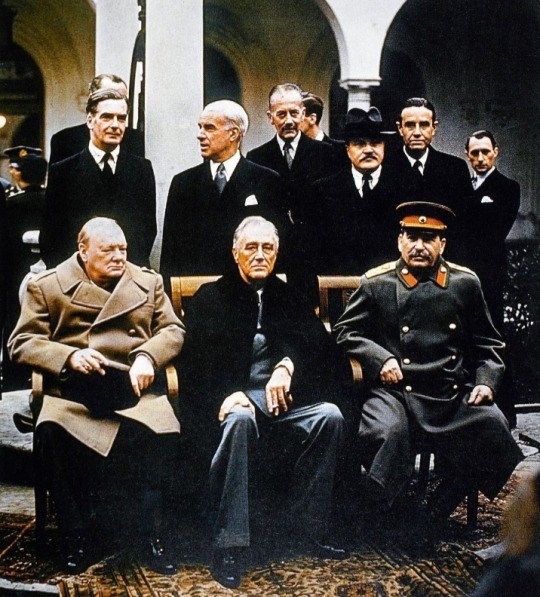
4 February 1945
The Yalta Conference opened in Crimea with Franklin D. Roosevelt, Winston Churchill, and Joseph Stalin meeting to plan the final defeat and occupation of Nazi Germany.
The key agreements were:
• Germany would face unconditional surrender and be divided into occupation zones;
• Poland would have its borders adjusted and was promised free elections, and
• The framework for the United Nations was established.
However, many in the West felt Roosevelt and Churchill made too many concessions to Stalin in Eastern Europe, which would lead to Cold War tensions in the years that followed.
#today in history#Roman Emperor Septimius Severus#Prussian Confederation#Teutonic Knights#Thirteen Years' War#Prussia#Polish King Casimir IV Jagiellonto#Second Peace of Thorn (1466)#Poland#Teutonic Order#George Washington#us presidents#Electoral College#Yalta Conference#Crimea#Franklin D. Roosevelt#Winston Churchill#Joseph Stalin#world war 2#Cold War
0 notes
Text
Yalta Conference, February 1945.
Subscriber Content Add content here that will only be visible to your subscribers. British Prime Minister Winston Churchill, U.S. President Franklin Roosevelt, and Soviet leader Joseph Stalin met at Yalta in February 1945 to discuss their joint occupation of Germany and plans for postwar Europe. Behind them stand, from the left, Field Marshal Sir Alan Brooke, Fleet Admiral Ernest King, Fleet…
#1940s#event & history#Franklin D. Roosevelt#History Daily#Joseph Stalin#Post-War Germany#Winston Churchill#World War II#Yalta Conference
0 notes
Text
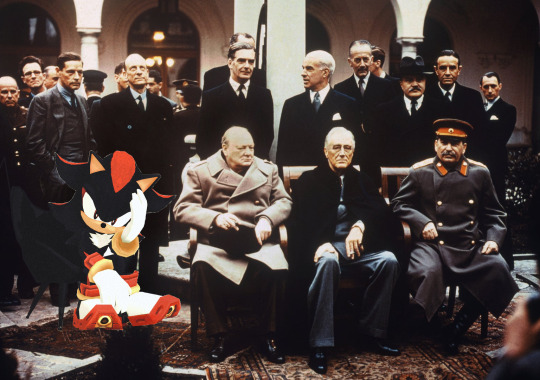
shadow the hedgehog at the yalta conference (1945)
4 notes
·
View notes
Text
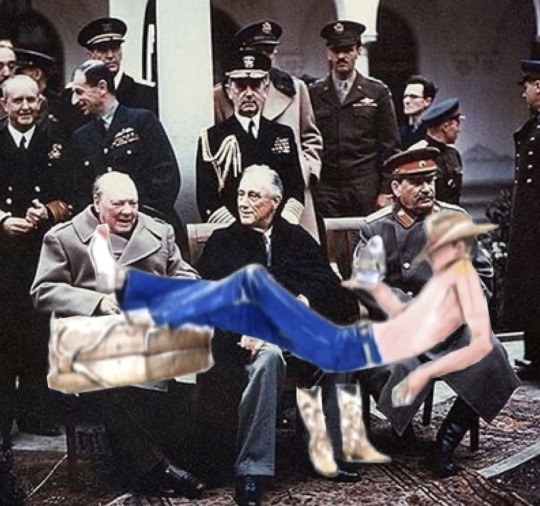
New pfp 😍😍 hey cowbones wyd in Crimea between the 4th and 11th of February in 1945
1 note
·
View note
Text
In February, 1945, when the USSR agreed at Yalta to join the Allies in the war on Japan, it was decided to divide Korea into two zones for purposes of military action. The Russians took the north, the Americans the south. The following July, at Potsdam, the 38th parallel was chosen as the “great divide.” Korea was a victim of Japanese aggression, not an enemy. We would come as liberators, not as conquerors. The military occupation was to end within a year of victory, followed by about five years of civilian trusteeship in which all the Big Four Powers, America, the Soviet Union, Great Britain and China, should help Korea to her feet. That was the plan. The reality proved otherwise. The growing cold war against the Soviet Union made Korea also a base. The two zones solidified into two areas of military occupation. Friction continues to grow. When American troops landed in South Korea, September 7, 1945, thousands of Koreans danced and cheered and shouted: “Mansai,” or “Live a Thousand Years.” Within six months surly Koreans were demanding how soon the Americans would go home. Within a year great uprisings took place in eighty cities and in hundreds of farming villages against the “police state” that the American armed forces kept in power. When the Americans landed in Korea, the Koreans had already a de facto government. A “People’s Republic” had been declared a day earlier by a congress of Koreans themselves. General John R. Hodge, commander of the U. S. armed forces, dissolved this “People’s Republic,” and drove most of its members underground. Two days after landing, Hodge announced to the Koreans – who had waited a quarter of a century for liberation – that Japanese officials would temporarily continue to run Korea. Korean delegations waiting to greet Americans were fired on – by Japanese police! The Russians pursued an opposite policy. They recognized the “People’s Committees” that the Americans were suppressing. They encouraged Korean initiative when it took the form of ousting the Japanese-appointed puppets, dividing the landlords’ lands, and nationalizing the Japanese-owned industry as the “property of the Korean people.” They especially looked with favor on what they called “mass organizations,” – farmers’ unions, labor unions, women’s associations and unions of youth. The Russian zone in the north fairly blossomed with such organizations energetically building their country after their own desire. From time to time the Americans and Russians held conferences to determine Korea’s future. Nothing came of these talks but increasing bitterness for two years. The Americans insisted on including pro-Japanese quislings and returned exiles in the provisional government. The Russians refused. The Russians insisted on including representatives of the trade unions, the farmers’ union and other similar organizations. The USA would not hear of this.
In North Korea: First Eye-Witness Reports, Anna Louise Strong, 1949
141 notes
·
View notes
Note
2 UN related questions for the Soviet America AU
1. Did the USSR ever try to claim America and China’s veto power for himself, and if so how did that work?
2. During the USSR, not only did the USSR have the ability to vote, but the Ukrainian SSR and the Byelorussian SSR due to an agreement made during the Yalta conference. With Ukraine escaping, do you think Soviet tried to change that agreement from being Ukrainian SSR and Byelorussian SSR to America and Byelorussian SSR in order to keep the same amount of voting power, and if so, how was that taken?
1. I think just him being able to influence their vote would be enough. Soviet still knows he can’t rock the boat too much. He’s hanging on by a thread and is trying to keep that fact hidden. So he lets them keep their “sovereignty” in the UN solely to keep a majority sway (cause I’m pretty sure there’s only five main superpowers with veto powers and Soviet would have three out of five vetoes)
2. I’m not… super sure. If America was under that agreement, would he lose the semi-sovereignty Soviet needs for him to keep the veto power? I can’t do a lot of research as I’m at work right now and things are getting busy (yayyyy spring break. Blegh)
34 notes
·
View notes
Text

The look on Ike’s face when the newsies ambushed him with news of MacArthur’s having been fired. Not a look of shock. Instead, a look of deep contemplation. Truman lied, having insisted that he fired him for insubordination and his demanding to use nuclear weapons. Truth is, Truman ignored MacArthur’s warning of a military build up at the 38th parallel. That was strike one: he embarrassed Truman. Truman assigned MacArthur responsibility of executing the war in Korea. MacArthur’s first plan is to cut the north’s supply line to the south. He chose a landing at Inchon. Bradley, the Joint Chiefs and Truman all opposed. Last moment, Truman granted permission but warned if it went badly, the blame would be solely on MacArthur. It went very well and again, Truman was embarrassed. MacArthur pushed forward and captured the capital city of Pyongyang. Truman was appalled. Sent him a nasty gram demanding he give it back. MacArthur did not. Strike number two. MacArthur pushed the Russians, Communist Chinese, and the remnants of the North Korean military off the peninsula - into China. MacArthur was winning the war in spades. He planned to demolish the last bridge standing over the Yalu River. Truman repeatedly refused. Only days after his final refusal, the north snuck back across that bridge and committed a massive counter offensive at Chosen Reservoir. This was Strike Three. What MacArthur failed to realize, that Ike is clearly contemplating, is that the US courtesy of the Yalta Conference in February 1945, the US agreed to never again fight a war to win it. No longer does the US use as a metric, real estate to measure success and failure. MacArthur was fighting to win. He was capturing real estate. Truman had no interest in winning. His plan, the FDR Plan was and is, to fight to a stalemate, taking the line of demarkation back to the national border from where it all began - as agreed upon in 1945. Ike’s not “surprised.” He’s contemplating what all future US wars will look like and what kind of “leadership” we will have to fight such a war. Folks, it’s criminal to commit the lives of our young to wars we have no intention of winning. If you’re not winning, you’re losing. It’s hateful. You have to really hate your country and your nation’s youth to do that.
20 notes
·
View notes
Text
My RusAme Fanfic Work Masterlist
I'm creating this as a master list for all my written RusAme works, as the title implies. They will be listed from most recent to oldest. Feel free to browse! If you have read my work before and enjoyed it in the past, some of these are edited with additional content if you're curious! Click read more to see the entire list.
Santa Baby (3251 words) by celestialassassin Chapters: 1/1 Fandom: Hetalia: Axis Powers Rating: Explicit Relationships: America/Russia (Hetalia) Characters: Canada (Hetalia), America (Hetalia), Russia (Hetalia) Additional Tags: Santa Kink, Oral Sex, scar mention, Scars, poor matthew, he only sees them kissing though so he's fine Summary: RusAme 2023 Secret Santa Gift Exchange | Prompt: “I saw Mommy Kissing Santa Claus (can be NSFW) Alfred and Ivan just kissing near a Christmas tree or under the mistletoe” In an attempt to prank Alfred back, Matthew finds something out about his brother that he wishes he could forget. It involves a certain Russian nation wearing a Santa outfit to fulfill Alfred’s, strange, but not unusual sexual fantasy.
gloved hands and uniforms (1934 words) by starkholic Chapters: 1/1 Fandom: Hetalia: Axis Powers Rating: Explicit Relationships: America/Russia (Hetalia) Characters: America (Hetalia), Russia (Hetalia), England (Hetalia), Historical Character(s) Additional Tags: Post-World War II, Secret Relationship, handjobs, blowjob, face fucking, Uniform Kink Summary: Prompt request from tumblr. Takes place during the Yalta Conference and Alfred can't help but think about how good Ivan looks in his uniform.
dumping a body like it's 1931 (1228 words) by starkholic Chapters: 1/1 Fandom: Hetalia: Axis Powers Rating: Teen And Up Audiences Relationships: America/Russia (Hetalia) Characters: America (Hetalia), Russia (Hetalia) Additional Tags: Blood, some violence but no written, Organized Crime, body dumping, Murder, 1930s, Human AU, Smoking, Established Relationship, Secret Relationship, Oneshot Summary: 1931 Chicago, Illinois. Alfred and Ivan kill a nameless stranger in an alley under the orders of their boss. They dump a body and smooch.
if i killed someone for you (464 words) by starkholic Chapters: 1/1 Fandom: Hetalia: Axis Powers Rating: Teen And Up Audiences Relationships: America/Russia (Hetalia) Characters: America (Hetalia), Russia (Hetalia) Additional Tags: Mentions of Violence, Blood, no murder on screen, dark tones, Ivan is soft with Alfred, no specific time period, forbidden relationship Summary: Ivan doesn't remember the fight only the aftermath. The room is covered in blood and Alfred is the only thing he cares about.
the very thought of you (2437 words) by starkholic Chapters: 1/1 Fandom: Hetalia: Axis Powers Rating: General Audiences Relationships: America/Russia (Hetalia) Characters: America (Hetalia), Russia (Hetalia) Additional Tags: Fluff, Cooking, Dancing, set during the Cold war, but it's more in the background, Christmas Summary: During the Cold War Alfred and Ivan still find a time and place to spend the holidays with one another. Cooking and dancing take place in their little cozy corner of happiness and safety. Angst makes a small appearance, but majority of it is sweet and fluffy.
a lifetime without you (9815 words) by starkholic 🌟 Chapters: 1/1 Fandom: Hetalia: Axis Powers Rating: Teen And Up Audiences Relationships: America/Russia (Hetalia) Characters: America (Hetalia), Russia (Hetalia), England (Hetalia), Original Male Character(s) Additional Tags: Mentions of War, Mild Sexual Content, Brief Vomiting, Brief mention of abortion, Trans Character, Pregnancy, Unplanned Pregnancy, Vietnam War, Cold War, Off Screen Death, Angst Summary: Prompt quote: "About the baby…it's yours." After WWII the world celebrated and the next generation came in a mass wave called the baby boomers. Alfred and Ivan have been in a hidden relationship for most of the 19th & 20th century. An unexpected pregnancy during tense political climates throws Alfred for a loop. edit I added additional scenes and interactions per the request of commentors throughout the years. Thank you for the inspiration!
meet me anywhere (548 words) by starkholic Chapters: 1/1 Fandom: Hetalia: Axis Powers Rating: Teen And Up Audiences Relationships: America/Russia (Hetalia) Characters: America (Hetalia), Russia (Hetalia) Additional Tags: Secret Relationship, Mentions of Sex, Cold War, forbidden relationship, Some angst, Some Fluff, Oneshot, Tumblr request Summary: 43 rusame + "You're special to me." At the peak of the cold war the two superpowers are forbidden to see one another. Their time is limit to secret motel visits and they wouldn't trade that time for anything in the world.
blue blood and starry eyes (6258 words) by starkholic Chapters: 5/? Fandom: Hetalia: Axis Powers, Detroit: Become Human (Video Game) Rating: Mature Warnings: Graphic Depictions Of Violence, Major Character Death Relationships: America/Russia (Hetalia) Characters: America (Hetalia), Russia (Hetalia) Additional Tags: Smoking, Ivan will die but he'll come back, Sex Work, Android Discrimination, familial fighting, android america, android russia, detroit become human alternate universe, Crossover, rated M for potential explicit scenes but nothing as of yet, Friends to Lovers, Mentions of Murder Summary: A collection of drabbles for a Rusame Detroit: Become Human AU/crossover I created. More info in the first chapter.
33 notes
·
View notes
Note
What's your opinion about those movies or series based on real superheroes that clearly take some liberties with the actual events and/or people? For example, the million of WW2 movies that always try to cram an All-Star Squadron member in there (even though there is proof that they weren't present at that specific event/battle) or that one movie a few years back that made up their own backstories and civilian names for the JLA members ("Cal Smith" and "Brandon Keaton" became memes for a while)
I certainly don't envy the task of any film maker trying to make something based around superheroes who actually exist in our real world. And the well known challenges that come with making a historical film almost certainly don't help. That being said, yes of course they bug me slightly.
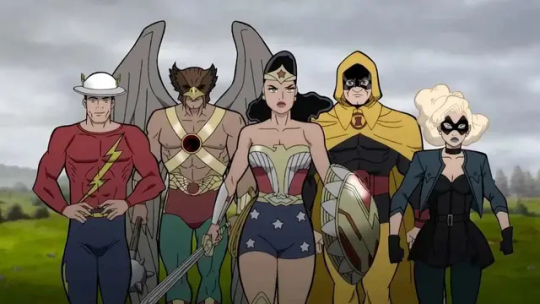
(A frame from WB's "Justice Society WWII" movie) When you're making a wartime period piece I understand the strong pull of including a member of the Society or the Squadron even as a cameo. They're such a specific texture of the era. This original generation of "mystery men" just weren't thought of or treated the way we treat superheroes now and any actor worth their salt would jump at the chance to play a living legend on the silver screen That being SAID, if your movie is going to be taking place during any of the actual combat fronts of WWII there's a pretty big historical inaccuracy you are choosing to make: Very famously, the Squadron COULDN'T operate directly on Axis territory during the war because of the influence of the Spear of Destiny.
Now there were exceptions of course, the mythical field around Uncle Sam allowed the Freedom Fighters to do some work around the edges of enemy lines especially as the war was coming to a close and the Spear's influence was faltering but none of the Core JSA set foot in Axis Occupied Europe until the Yalta Conference at the earliest and the events of THAT day weren't declassified until years decades the war. As cool as the scene is in your head, Green Lantern was not dog-fighting the Luftwaffe over D-Day it just didn't happen. Stories set on the home front can play with this slice of history far more but if its sent DURING the fighting then you have to be a bit more creative. Nose cone art, pin ups, USO shows, newspaper headlines, newsreels, having them be treated as common cultural reference points in conversation or the like. Sometimes the most immersive use of the Squadron in your WWII movie is using their influence sparingly. That being said when it comes to MODERN movies I think its unethical on its face to try and speculate or color in the personal lives, thoughts and feelings of still living and working superheroes. While it comes from a good place of trying to humanize them for a wider audience, the reality is that you're needling at something we as the public don't have a right to poke at. I respect movies more when they too use our heroes in these tales as we see them, appearing on the scene, fighting the good fight and then taking their leave before being too buried in praise. Which means that movies based around superhero centric can also choose to focus on the perspective of a regular person who was also there. People will grouse about the "normal people" characters in movies like Metropolis: Crisis of Infinity or No Man's Land but at least that gives some props to normal people who are actually willing to share their thoughts and experiences. Plus if your POV character comes off as a drag on the movie then that is the writer's problem.
#dc#dcu#dc comics#dc universe#superhero#comics#tw unreality#unreality#unreality blog#ask game#ask blog#asks open#please interact#worldbuilding#justice society#justice society of america#JSA#all star squadron
23 notes
·
View notes